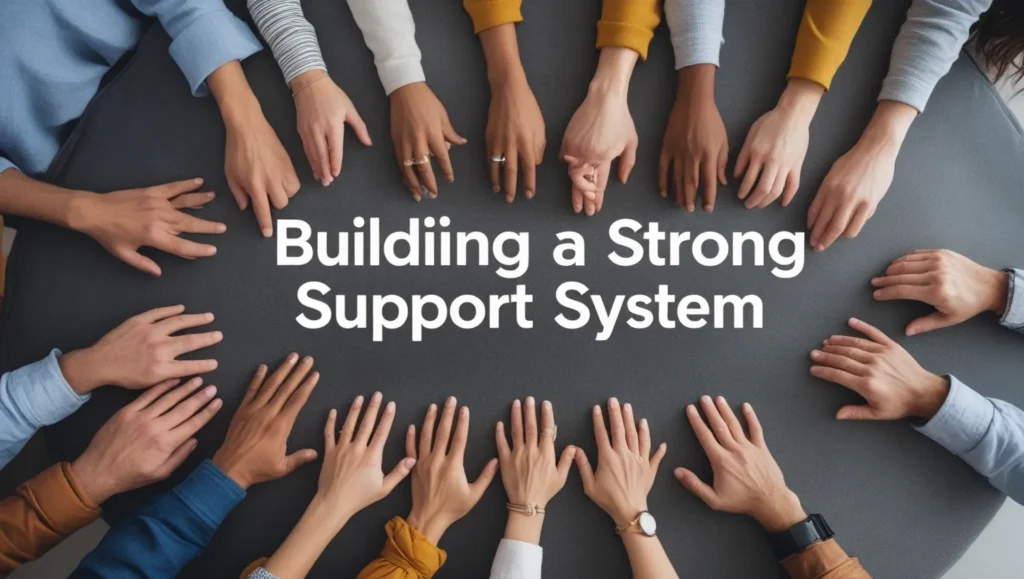Building a Strong Support System
Life is full of ups and downs, and while self-reliance is valuable, no one is meant to go through everything alone. A strong support system provides emotional stability, practical help, and encouragement when you need it most. Whether you’re navigating personal challenges, working toward career goals, or focusing on self-growth, surrounding yourself with the right people can make all the difference.
🌱 Why a Support System is Important
- Emotional Balance – Trusted friends and family help you process emotions, reduce stress, and feel less isolated.
- Encouragement and Motivation – Supportive people push you to keep going when you feel like giving up.
- Practical Help – From career advice to childcare or financial guidance, support systems can provide real-world solutions.
- Accountability – Having people who check in on your goals helps you stay consistent.
- Sense of Belonging – Humans are social beings; feeling connected boosts mental well-being.
1. Identify Who’s Already in Your Circle
Start by looking at the relationships you already have:
- Friends who listen and encourage you.
- Family members who show unconditional care.
- Colleagues or mentors who guide your career.
- Community members from clubs, religious groups, or organizations.
💡 Tip: Quality matters more than quantity—one genuine supporter is better than ten casual acquaintances.
2. Diversify Your Support System
Not all support looks the same. A balanced system includes:
- Emotional Supporters – Friends or loved ones who provide empathy.
- Practical Helpers – People who can assist with tasks, advice, or resources.
- Inspirational Figures – Mentors or role models who motivate you.
- Accountability Partners – Someone who checks in on your progress.
3. Strengthen Your Current Relationships
- Be open and communicate your needs.
- Spend quality time with those who matter.
- Offer support in return—relationships thrive on mutual effort.
- Express gratitude often to strengthen bonds.
4. Expand Your Network
If your current circle feels limited, seek new connections:
- Join local community groups or hobby clubs.
- Attend professional networking events.
- Volunteer for causes you care about.
- Explore online communities with shared interests.
5. Set Healthy Boundaries
Not every relationship is supportive. Learn to:
- Recognize toxic or draining connections.
- Limit contact with negative influences.
- Protect your emotional energy by prioritizing uplifting people.
6. Nurture Your Support System
- Regularly check in with friends and family.
- Celebrate milestones together.
- Be reliable—support is a two-way street.
- Create traditions like weekly calls or monthly meet-ups.
Final Thoughts
Building a strong support system takes time and effort, but the rewards are invaluable. A network of supportive people provides strength during challenges, joy during successes, and stability throughout life’s unpredictable journey.
Remember, the goal isn’t to have a huge circle—it’s to have the right people who lift you up, encourage you, and walk with you through every season of life. Start today by strengthening one relationship, reaching out to one new connection, and nurturing the bonds that make you feel seen, heard, and supported.

